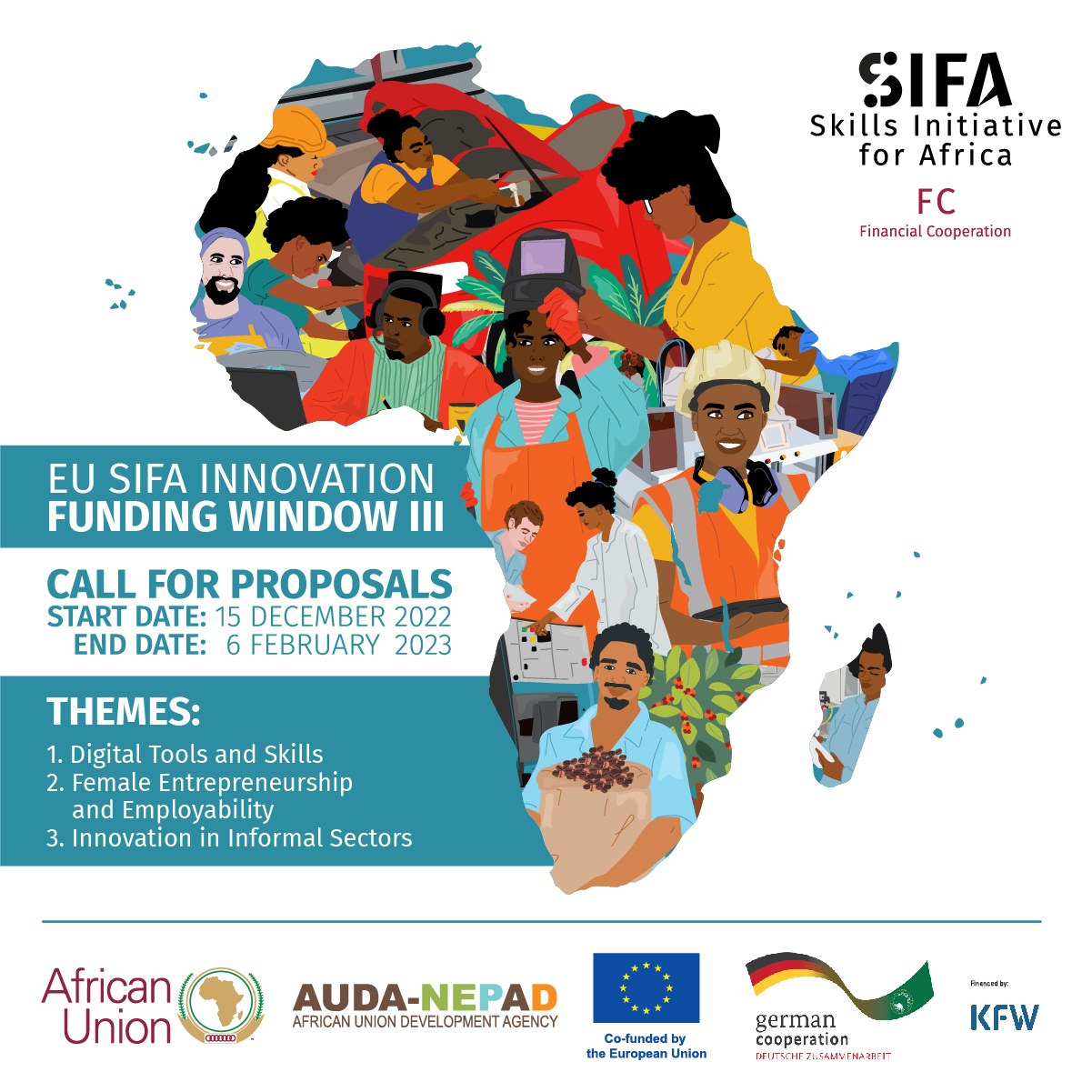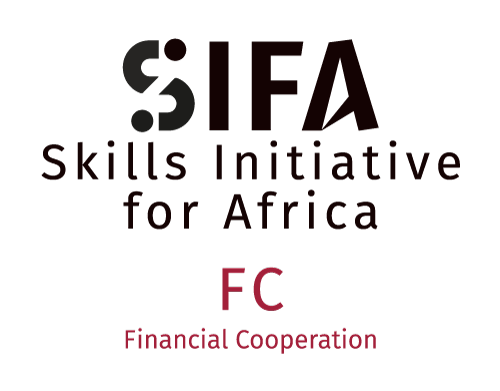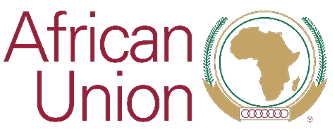
AUDA-NEPAD announces the first Call for Proposals for the EU SIFA Innovation Funding Window III
The Skills Initiative for Africa Financial Cooperation is a Programme financed by the German Government and the European Union through KfW Development Bank, providing grants for selected projects through a competitive evaluation process in eight African countries.
The EU SIFA Innovation Funding Window III follows the successful launches of SIFA’s Funding Windows I and II, targetting job creation projects through public-private sector collaboration. Funding Window III is designed to support innovative skills development approaches in Technical and Vocational Education and Training (TVET), which showcase improved or new ways of making skills more accessible, relevant, and recognised for employability.
The first Call for Proposals of Funding Window III will open on December 15, 2022. It will seek applications for innovative, high-quality, and multi-dimensional TVET projects in Cameroon, Ethiopia, Ghana, Kenya, Nigeria, South Africa, Togo, and Tunisia.
Professional TVET entities from the public and private sectors, academia, civil society, and organisations supporting skilling for enhanced employability, self-employment, and entrepreneurship from the countries mentioned are invited to submit project proposals. The Programme will award co-financing grants ranging from 150.000 to 400.000 euros per project through a competitive application process. The applicant is obligated to contribute 10% in cash or in-kind from its own funds to complete the project finance.
Funding Window III will open on four separate occasions. Each Call for Proposals comprises three thematic areas.
- Digital Tools and Skills: the delivery of TVET via digital technologies and applications to enhance employability in the post-COVID-19 era. The projects funded under this theme aim to promote innovative ideas to ensure continuous training delivery during COVID-19 and similar disruptive crises. It builds on accelerating digitalisation and subsequent demands of the Future of Work where access to skilling does not depend on physical boundaries, costly lodging or travel.
- Female Entrepreneurship and Employability: TVET supporting enhanced employability and enterprise creation amongst women, youth, and vulnerable groups. This theme seeks to fund projects improving the take-up of innovative solutions to support female entrepreneurs and to promote the skilling of women and youth to increase their resilience in the labour market against issues such as COVID-19 and other economic challenges.
- Training Innovation in Informal Sectors: innovation in TVET to deliver training and skills in informal sectors and vulnerable groups. This theme seeks to provide opportunities for projects enhancing the basic skilling of disadvantaged women and youth, refugees, and internally displaced persons.
How to Apply
- The Guide for Applicants will be available on the SIFA website on December 15, 2022, when the Call opens.
- TVET entities and other interested organisations must be publicly accredited and/or legally registered formal entities to apply. SIFA supports projects submitted by registered legal entities as stand-alone applicants or as partnerships between organisations or institutions.
- All submissions will be made online via SIFA’s application system SmartME on the SIFA website, with the same submission deadline for all countries.
- SIFA will begin the evaluation process by checking the eligibility of proposals, and then a technical evaluation will be conducted by independent TVET innovation experts.
If you have any questions, please visit our FAQs section. If you are still looking for the information you need, please send us a message through our contact form.
Skills Initiative for Africa is an African Union Commission intervention implemented by the African Union Development Agency with the support of the Federal Republic of Germany and the European Union. SIFA’s Financial Component is financed by Germany and the European Union through KfW Development Bank. The Programme’s Technical Component is supported by Deutsche Gesellschaft für Internationale Zusammenarbeit (GIZ), the International Labour Organization, and the European Training Foundation.




